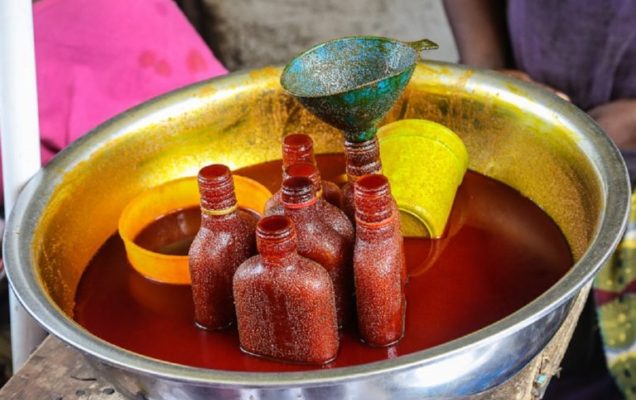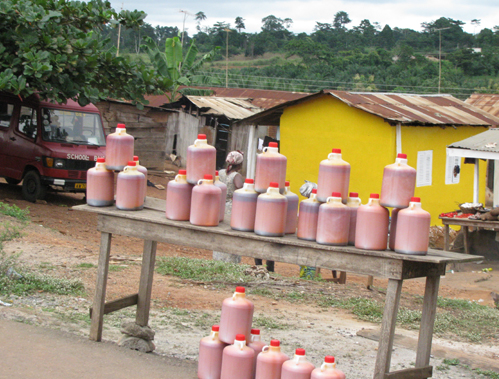30% of palm oil in Ghanaian markets fail FDA’s Sudan dye test
- Posted on
- Comment

As part of the Food and Drugs Authority’s (FDA) routine market surveillance activities on food safety in 2021, about 30% of palm oil found in the Ghanaian market failed the Authority’s nationwide Zero Sudan IV dye test, an increase from 7.3% in 2018.
In October last year, the Authority sampled palm oil from major markets across the country, including 10 major markets in Greater Accra, to test for the presence of Sudan IV dye, leading to several arrests. The laboratory analysis indicated that out of the 306 samples analysed, 70 failed the test for Sudan IV dye.
Except for the Upper West Region, all the regions had one or more samples from their markets testing positive for the presence of Sudan IV dye, with Greater Accra recording the highest failure rate (60.8%).
Some markets like Dome and the Mallam Attah Market in the Greater Accra Region had 100% failure for their samples analysed.
Sudan IV dye is a chemical used in the production of textiles, leather, plastics, papers, hair, mineral oil, waxes, and cosmetics and is not to be ingested.
The toxicity and illegal use of Sudan IV as food additives are strongly banned by the Food and Drugs Authority and other international bodies in the FAO/WHO Codex Alimentarius.
Despite the enormous public education and sensitization activities on the health implications of adding Sudan IV dye in foods, especially palm oil, such as hyperactivity in children, severe allergies, hives, migraine, and diseases such as cancer, producers and Ghanaian traders continue to use this chemical as an enhancer in palm oil due to consumers’ preference and demand for “redness” in their palm oil products.
The FDA has initiated a rigorous public education campaign in major markets like Mallam Atta Market, Dome Market in Accra as well as other Satellite Markets across the country.
As part of this campaign, more samples are continuously being sampled across the markets, and traders whose palm oil products fail the test will be made to face the law.
Additionally, the FDA is in the process of introducing a traceability system for AgroProducts in the country, which would help in enhancing food safety issues as far as Agro products are concerned and safeguard the health and safety of the consuming public.
-FDA








 (Selorm) |
(Selorm) |  (Nana Kwesi)
(Nana Kwesi)